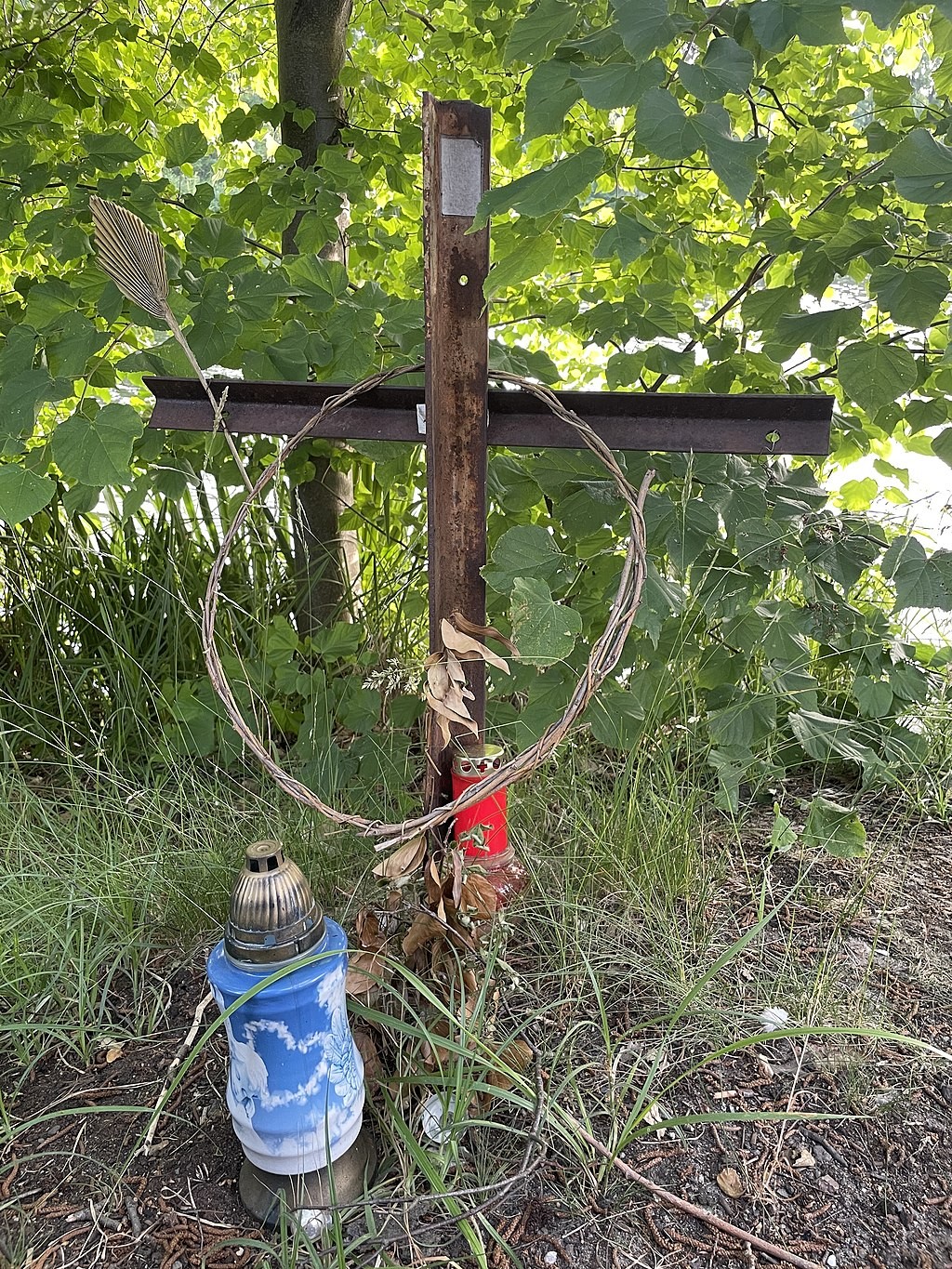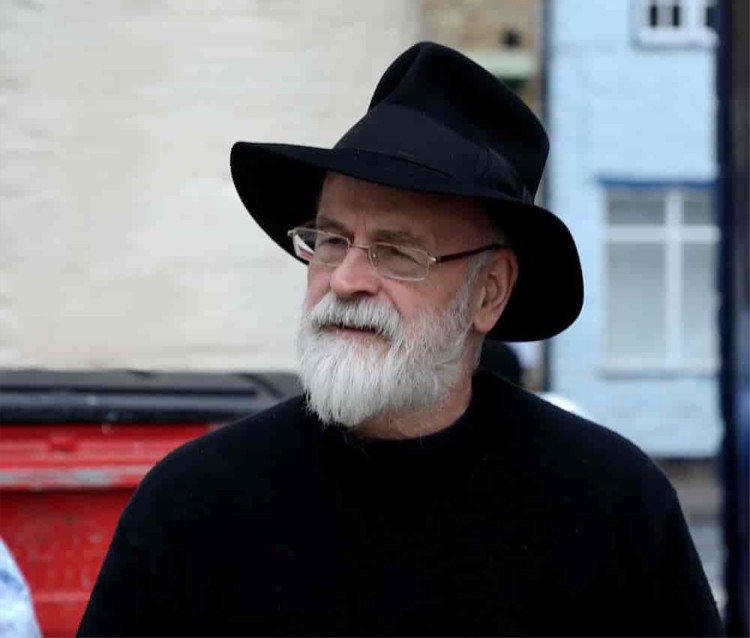

‘Arbeit und Struktur’ by Wolfgang Herrndorf
- Title ‘Arbeit und Struktur’ by Wolfgang Herrndorf
- Author Wolfgang Herrndorf
- Year 2013
- Language German
- Tags Death Outside the Law Intimate Portraits of Death Blog
- Legislative context Criminal Code, 1998 (Germany) Criminal Code, 1937, Art 115 (Switzerland)
- Author of entry Marc Keller
The German writer and painter Wolfgang Herrndorf started his blog ‘Arbeit und Struktur‘ (‘Work and Structure‘) in March 2010 after he had been diagnosed with a fatal brain tumour (glioblastoma). The blog, which he initially kept only for his friends and later publicly, served him as a work journal, as well as a status report and a place to reflect on his way of coping with the illness. In diary-like entries, he reported on doctor’s visits and hospital stays, on his emotional states between hope and despair, on his everyday life, as well as on his reading and writing work, which he pursued extremely intensively in the time he had left. Herrndorf also describes his physical and mental decline, as well as his thoughts on how and when he would kill himself, repeatedly addressing questions of assisted dying. It is clear to him that he wants to end his life himself, before the disease takes away his ability to think and communicate and changes his personality beyond control. However, assisted dying was not possible for Herrndorf in Germany, as it was still unregulated at the time, and the medical prescription of a drug for the purpose of taking one's own life could only take place in a legal grey area. Although Herrndorf also considers the 'Swiss solution', i.e. assisted suicide with the help of a Switzerland-based organisation, he firmly rejects this option, not least because of the negative impression that the documentary film 'Terry Pratchett: Choosing to Die' gave him of this formalised dying procedure, which he first recounts in caricature in his blog and then comments on ironically: 'I don't want to die like this, I can't die like this, I won't die like this. Only over my dead body. The film has 8.4 points on IMDB, and funny: "This review may contain spoilers."' Herrndorf decided to illegally procure a gun, with which he killed himself on 26 August 2013. In the afterword to the book in which the blog was published after Herrndorf's death, his friend the author Kathrin Passig writes: ‘It was probably one of the last days he was still capable of this act.‘
Herrndorf's death resonated strongly in the media, especially as he prepared it publicly through his public diary, in which he vehemently advocated for the right to assisted dying. In the 2015 Bundestag debates that led to a de facto ban on physician-assisted and organised assisted suicide, Herrndorf’s death and book were cited repeatedly. On one hand, his suicide is itself an example of how undignified the end of life can be for the terminally ill when there is no regulated possibility of assisted suicide, just as Herrndorf declared his necessary clandestine search for a weapon in his text as ‘not worthy of a civilised Central European state.‘ On the other hand, Herrndorf created formulations in his text that were repeatedly used in public discourse to argue for the liberalisation of assisted suicide. Firstly, in his blog entry of 30 April 2010, he used the term ‘exit strategy‘ to describe a suitable way for him to take his own life before the cancer destroyed his higher brain functions. In this entry, he writes ‘After all, I didn't want to die, at any time, and I don't want to now. But the certainty of having it in my own hands was a necessary part of my mental hygiene from the beginning. [...] I need to know that I am the master of my own house.‘ The phrase ‘being master of one’s own house‘ was repeatedly quoted both by MPs and in the media to refer to the value of self-determined, controlled dying. The value of this feeling of control was underlined by Herrndorf's description of the great liberation he felt when he found the ‘exit strategy‘ that suited him, finding the weapon which gave him the feeling of remaining ‘master of his own house,‘ that is of being able to decide for himself how and when he wanted to die. Herrndorf's text was also used as a plea for the legalisation of assisted suicide in the subsequent debates after the 2015 ban, with the term 'exit strategy' repeatedly being used to refer to (pre-emptive) suicide.
Suggested citation
-
Arbeit and Struktur, Assisted Lab: Assisted Lab: A Living Archive of Assisted Dying, 18 March 2024 <link>
Reviews
- Ralph Gerstenberg, Wolfgang Herrndorf Tagebuch über den Prozess des Sterbens, Deutschlandfunk Kultur, 2013 → deutschlandfunk.de
- Kathrin Passig, Mein Wille geschehe, Süddeutsche Zeitung Magazin, 2013 → sz-magazin.sueddeutsche.de
- Martin Ebel, Autonom bleiben bis zum Ende, Der Bund, 2013 → derbund.ch
Media citations
- Sie wollen sterben, ZEIT am Wochenende, 2025 → zeit.de
- Mira Gajevic, Wir müssen über Sterbehilfe reden, Frankfurter Rundschau, 2019 → fr.de
- Barbara Dribbusch, Richter prüfen Sterbehilfeverbot, Die Tageszeitung (taz), 2019 → taz.de
- Cornelie Barthelme, Eine Frage von Leben und Tod, Frankfurter Neue Presse, 2018 → fnp.de
- Catherine Newmark, Der Tod gehört allen, Zeit online, 2015 → zeit.de
- Dirk Knipphals, Debatte über Sterbehilfe. ‘Das ist meine größte Angst,‘ Die Tageszeitung (taz), 2014 → taz.de
Interest Group citations
- Bettina Schöne-Seifert, Medizinethik: Sollten Menschen sterben dürfen, bevor sie leiden?, Süddeutsche Zeitung, 2024 → sueddeutsche.de
- Assistierter Suizid: Was die Gesetzesentwürfe vorsehen – Wem sollen wir beim Sterben helfen?, chrismon. Das evangelische Magazin, 2023 → chrismon.evangelisch.de
- Dialogpapier Hospizliche Haltung in Grenzsituationen, Deutscher Hospiz- und PalliativVerband e. V., 2021 → dhpv.de
- Zwischen Horrorszenario und Zukunftsmusik – eine spannende Jahrestagung von palliative zh+sh, palliative ch – Zeitschrift der Schweizerischen Gesellschaft für Palliative Medizin, Pflege und Begleitung, n. 3, 2019 → palliative.ch
- Stellungnahmen & Zuschriften, Humanes Leben – Humanes Sterben. Die Zeitschrift der Deutschen Gesellschaft für Humanes Sterben, v. 38, n. 4, 2018 → dghs.de
- Der selbstbestimmte Tod, Bibliomed Pflege – Das Portal für die Pflege, 2016 → bibliomed-pflege.de
- ‘Mein Tod gehört mir.‘, Hospizbewegung Hilden – Hospiz-Nachrichten, n. 22, 2015 → hospizbewegung-hilden.de
- Blog als Buch, Humanes Leben – Humanes Sterben. Die Zeitschrift der Deutschen Gesellschaft für Humanes Sterben, v. 34., n. 1., 2014 → dghs.de
- ‘Der Tod als Erlösung vom Leiden‘ – Geschichte und Ethik der Sterbehilfe seit dem Ende des 19. Jahrhunderts in Deutschland, Evangelische Stiftung Alsterdorf, 2014 → alsterdorf.de
- Entscheidungen am Ende des Lebens: Argumentationshilfe zur Sterbebegleitung und Sterbehilfe, Erzbistum Köln, 2014 → erzbistum-koeln.de
- Rund um die Palliativpflege – einige Streiflichter, palliacura – Eine Stiftung von EXIT (Deutsche Schweiz), 2014 → palliacura.ch
- Selbstbestimmter Abschied nach Krebsleiden, Deutsche Gesellschaft für Humanes Sterben, 2013 → dghs.de
- Buchtipp: Wolfgang Herrndorf ‘Arbeit und Struktur‘, palliative zh+sh, 2013 → pallnetz.ch
Legal and Paralegal citations
- Rede von Kulturstaatsministerin Grütters bei der Verleihung des Büchner-Preises, des Merck-Preises und des Freud-Preises, Bundesregierung, 5 November 2016 → bundesregierung.de
- Draft laws for the regulation of assisted suicide, Ausschuss für Recht und Verbraucherschutz, Deutscher Bundestag, 18, no 66, 23 September 2015 → bundestag.de
- Draft laws for the regulation of assisted suicide, Deutscher Bundestag, 18, no 115, 2 July 2015 → dserver.bundestag.de
- Debatte zum Thema Sterbebegleitung, Landtag Rheinland-Pfalz, 16, no 102, 23 July 2015 → dokumente.landtag.rlp.de
- Renate Künast (MP), Hilfe zum Sterben – Hilfe beim Sterben?, Recht und Politik, vol 50, no 1, 2014 → elibrary.duncker-humblot.com
- Paula Piechotta (MP), Wer die ärztliche Hilfe zum Suizid verbietet, drängt Betroffene in die Illegalität, n. d. → paulapiechotta.de
Related Media
Show

Robert Koall (dramaturg) and Adrian Figueroa (stage director), Arbeit und Struktur, premiered on 9 September 2023
Robert Koall (dramaturg) and Adrian Figueroa (stage director), Arbeit und Struktur, premiered on 9 September 2023
Related Archival Entries
'Terry Pratchett: Choosing to Die' by Charlie Russell

Charlie Russell (director), Terry Pratchett (writer)
After being diagnosed with Alzheimer’s, renown author Terry Pratchett investigates in a television documentary the only assisted death option available to residents of the United Kingdom: travelling to Switzerland to seek the option through Dignitas.